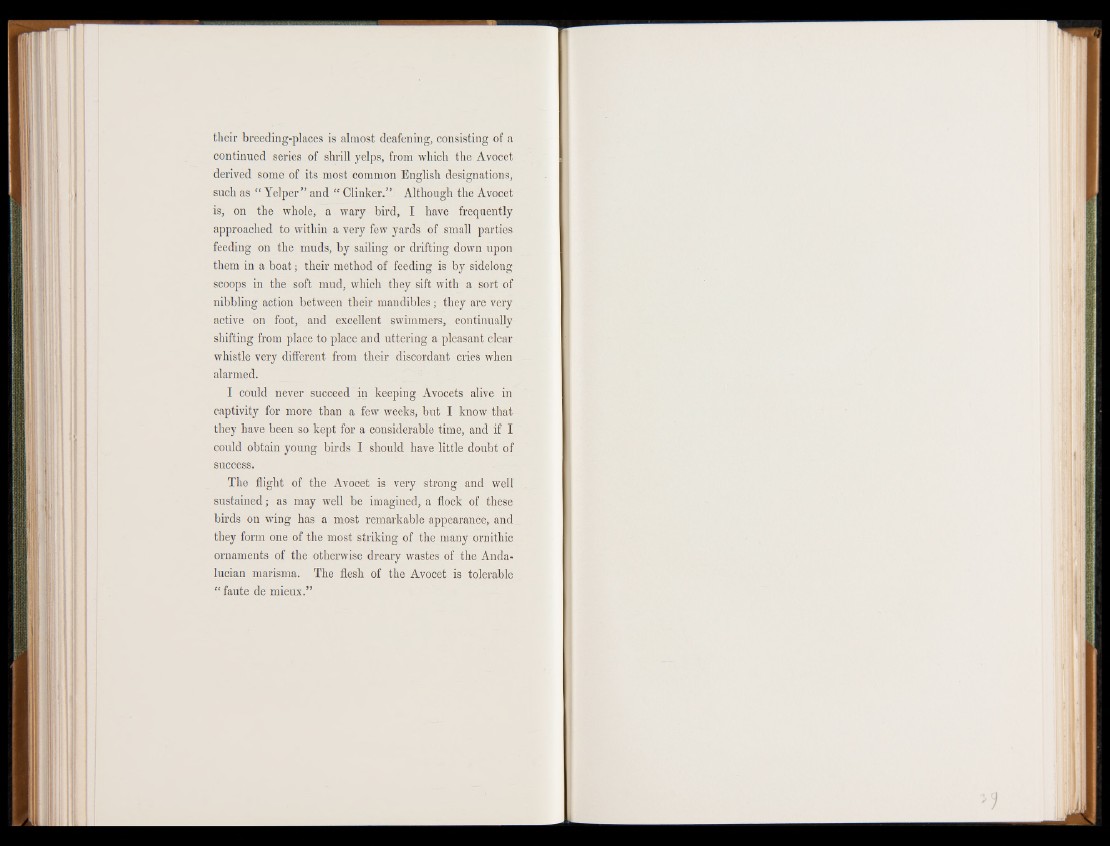
their breeding-places is almost deafening, consisting of a
continued series of shrill yelps, from which the Avocet
derived some of its most common English designations,
such as “ Yelper ” and “ Clinker.” Although the Avocet
is, on the whole, a wary bird, I have frequently
approached to within a very few yards of small parties
feeding on the muds, by sailing or drifting down upon
them in a boat; their method of feeding is by sidelong
scoops in the soft mud, which they sift with a sort of
nibbling action between their mandibles; they are very
active on foot, and excellent swimmers, continually
shifting from place to place and uttering a pleasant clear
whistle very different from their discordant cries when
alarmed.
I could never succeed in keeping Avocets alive in
captivity for more than a few weeks, but I know that
they have been so kept for a considerable time, and if I
could obtain young birds I should have little doubt of
success.
The flight of the Avocet is very strong and well
sustained; as may well be imagined, a flock of these
birds on wing has a most remarkable appearance, and
they form one of the most striking of the many ornithic
ornaments of the otherwise dreary wastes of the Anda-
lucian marisma. The flesh of the Avocet is tolerable
faute de mieux.”